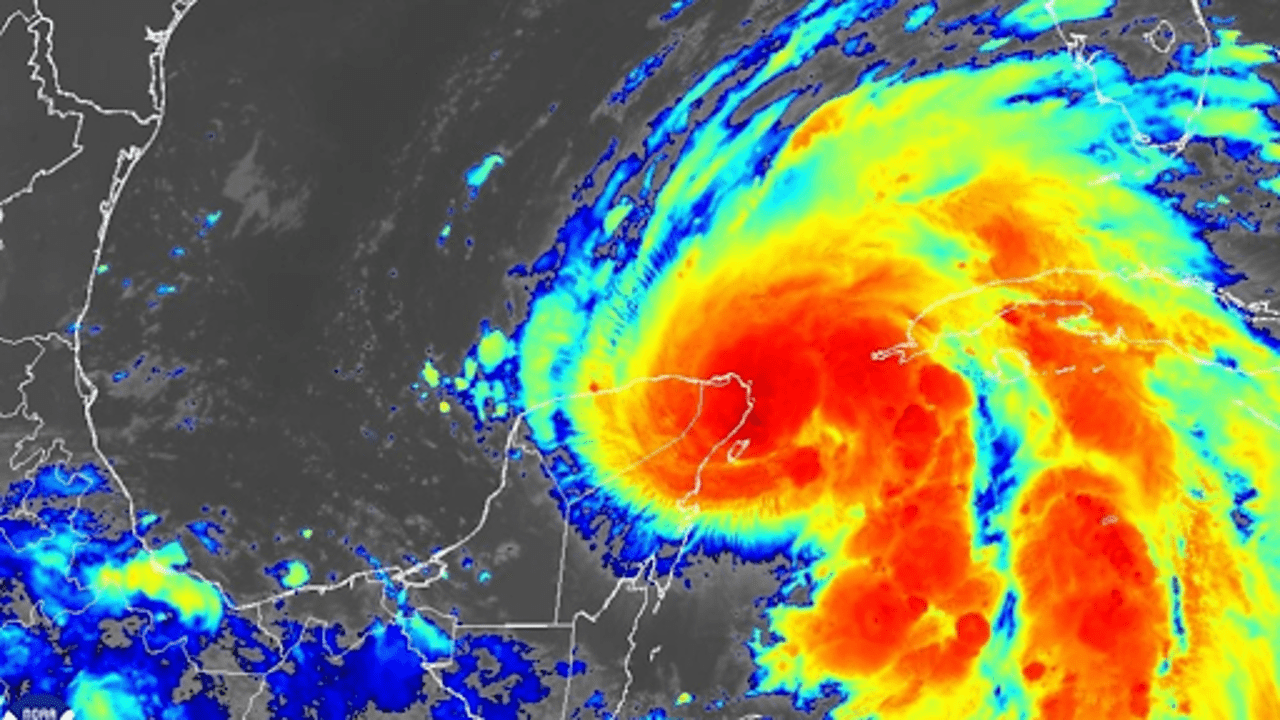
A satellite image from 6 a.m. on Wednesday, Sept. 25, 2024, shows Tropical Storm Helene approaching the Gulf of Mexico. CTV News
A massive hurricane named Helene slammed parts of Mexico on Wednesday and is now heading toward Florida. Forecasters warned that Helene could become a Category 4 storm, with winds exceeding 129 mph (208 km/h), and could bring life-threatening storm surges capable of swallowing entire homes. The storm's center is currently about 430 miles southwest of Tampa and is expected to make landfall in Florida on Thursday evening.
Helene has already caused significant flooding in Mexico, uprooting trees and damaging homes. Tropical storm conditions are expected to begin in southern Florida by Wednesday night, moving northward through Georgia and South Carolina by Thursday. With top winds at 85 mph, the storm is quickly gaining strength and could cause widespread destruction along its path.
Florida residents are bracing for the storm’s arrival, scrambling to higher ground, buying supplies, and boarding up their homes. Schools have been closed, and states of emergency have been declared across the Southeastern U.S. Many Floridians are remembering Hurricane Michael, which devastated parts of the Panhandle in 2018 as a Category 5 storm. Helene is expected to be one of the largest storms to hit the region in recent years.
The storm surge in the Big Bend area of Florida could reach up to 20 feet, putting entire communities at risk. Meteorologists warn that the storm’s impact could reach far inland, with hurricane warnings extending into Georgia and tropical storm warnings reaching as far as North Carolina. The Southeast is preparing for power outages, toppled trees, and flooding, with emergency services on standby to respond to rescues and damage control.
In Tallahassee, residents are taking precautions. Many, like Connie Dillard, are praying for safety and evacuating the area. Students from local universities are also taking action to protect their homes before leaving town. "I really don’t know what to expect," said Kameron Benjamin, a student from Florida A&M University, as he filled sandbags to secure his apartment.
Preparations for the storm include the deployment of 18,000 linemen from out of state to help restore power. Airports in major cities like Tallahassee and Tampa plan to close, and 62 hospitals and assisted living facilities have already evacuated their residents.
Georgia has also activated 250 National Guard troops, and officials are warning residents to prepare for prolonged power outages. The region hasn’t experienced sustained tropical storm winds since 2017, and the storm could bring dangerous conditions to areas as far north as Atlanta.
In Mexico, the Yucatan Peninsula was also placed under hurricane warnings as Helene swept through the area earlier in the week. Meanwhile, Cuba has been bracing for the storm’s impacts by relocating cattle and medical teams, and shutting off power in vulnerable communities.
Helene is the eighth named storm of the Atlantic hurricane season, which has been intensified by record-warm ocean temperatures. The storm formed in the Caribbean earlier this week and is expected to bring severe weather across the U.S. Southeast, causing widespread evacuations and emergency responses.















